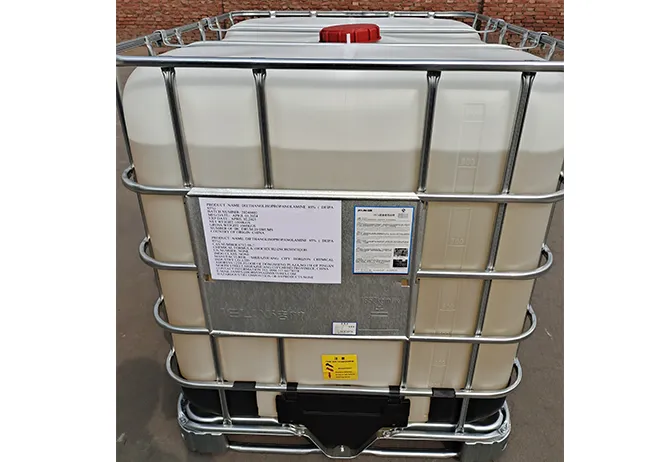
Exploring the Benefits and Uses of Diammonium Phosphate Fertilizer in Agriculture
The Role of Diammonium Phosphate Fertilizer in Modern Agriculture
Diammonium phosphate (DAP) is one of the most widely used fertilizers in agriculture today. Its popularity stems from its high nutrient content, ease of application, and significant role in enhancing crop yields. As the demand for food increases globally, understanding the benefits and complexities surrounding DAP becomes crucial for both farmers and consumers.
Composition and Nutritional Value
Diammonium phosphate is a water-soluble ammonium phosphate fertilizer that contains two essential nutrients nitrogen (N) and phosphorus (P). The typical composition of DAP is approximately 18% nitrogen and 46% phosphorus pentoxide (P₂O₅), making it one of the most concentrated phosphate fertilizers available. Nitrogen is vital for plant growth as it contributes to the development of amino acids, proteins, and chlorophyll, while phosphorus plays a critical role in energy transfer, photosynthesis, and the development of roots and flowers.
Advantages of DAP Fertilizer
1. High Nutrient Efficiency Due to its high nutrient content, DAP allows farmers to apply fewer fertilizers compared to other products. This efficiency not only reduces the cost of inputs but also minimizes environmental impact through decreased runoff and leaching.
2. Versatile Application DAP can be applied at various stages of crop growth and is effective for a wide range of crops, including cereals, fruits, and vegetables. Its water solubility means it can be used in both dry and liquid fertilizer applications, providing flexibility for farmers.
3. Enhancing Soil Health The application of DAP can improve overall soil fertility. Phosphorus helps in the formation of soil aggregates, which enhance soil aeration and water retention. This improved soil structure promotes healthier root systems, ultimately leading to better crop resilience and productivity.
4. Rapid Uptake by Plants The nitrogen and phosphorus in DAP are readily available for plant uptake. This quick action can be particularly beneficial during early growth stages, helping crops establish themselves more effectively and paving the way for higher yields.
diammonium phosphate fertilizer

Environmental Considerations
While DAP offers numerous benefits, its application must be managed carefully to avoid potential environmental concerns. Excessive use of fertilizers can lead to nutrient runoff into waterways, resulting in issues such as eutrophication, which depletes oxygen in water bodies and harms aquatic life. To mitigate these risks, farmers must adhere to recommended application rates and timing, integrate soil testing, and consider precision agriculture techniques.
Best Practices for DAP Use
1. Soil Testing Conducting regular soil tests helps determine existing nutrient levels and informs fertilizer needs, allowing for more precise applications of DAP.
2. Integrated Nutrient Management Combining DAP application with organic fertilizers and other nutrients can lead to a more balanced nutrient supply, enhancing crop health and reducing reliance on chemical fertilizers.
3. Application Timing Timing of application is critical. Applying DAP at planting or during the early growing season can maximize nutrient uptake, particularly for crops with high phosphorus requirements.
4. Appropriate Placement Applying DAP in a banded manner near the plant roots is more efficient than broadcasting. This technique allows plants to access the nutrients more readily while minimizing losses to the environment.
Conclusion
Diammonium phosphate fertilizer plays a pivotal role in modern agriculture, providing essential nutrients necessary for optimal crop growth and productivity. Its high efficiency, ease of use, and positive impact on soil health make it a valuable tool for farmers seeking to meet the world's growing food demands. However, responsible management practices are essential to mitigate environmental risks and ensure sustainable agricultural practices. By employing best practices and adhering to soil health principles, farmers can continue to benefit from DAP while preserving the environment for future generations.
-
Sodium Dichloroisocyanurate Safety Handling ProtocolsNewsJul.29,2025
-
Mining Chemicals for Copper Extraction Processes GuideNewsJul.29,2025
-
Fertilizer for Sale Shipping and Storage TipsNewsJul.29,2025
-
Dimethyl Disulfide as Sulfurizing AgentNewsJul.29,2025
-
Benzotriazole Safety Data Handling and Storage GuidelinesNewsJul.29,2025
-
Ammonium Bicarbonate Safety Handling Storage GuidelinesNewsJul.29,2025
-
The Transformative Role Of Trichloroisocyanuric Acid in Water TreatmentNewsJul.23,2025
Hebei Tenger Chemical Technology Co., Ltd. focuses on the chemical industry and is committed to the export service of chemical raw materials.
-

view more DiethanolisopropanolamineIn the ever-growing field of chemical solutions, diethanolisopropanolamine (DEIPA) stands out as a versatile and important compound. Due to its unique chemical structure and properties, DEIPA is of interest to various industries including construction, personal care, and agriculture. -

view more TriisopropanolamineTriisopropanolamine (TIPA) alkanol amine substance, is a kind of alcohol amine compound with amino and alcohol hydroxyl, and because of its molecules contains both amino and hydroxyl. -

view more Tetramethyl Thiuram DisulfideTetramethyl thiuram disulfide, also known as TMTD, is a white to light-yellow powder with a distinct sulfur-like odor. It is soluble in organic solvents such as benzene, acetone, and ethyl acetate, making it highly versatile for use in different formulations. TMTD is known for its excellent vulcanization acceleration properties, which makes it a key ingredient in the production of rubber products. Additionally, it acts as an effective fungicide and bactericide, making it valuable in agricultural applications. Its high purity and stability ensure consistent performance, making it a preferred choice for manufacturers across various industries.











